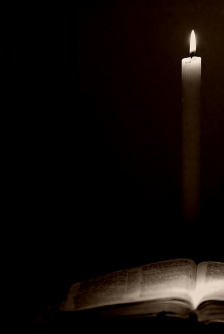May 30, 2021: First Sunday after Pentecost – Trinity Sunday
John 3:1-17
There was a Pharisee named Nicodemus, a leader of the Jews. He came to Jesus by night and said to him, “Rabbi, we know that you are a teacher who has come from God; for no one can do these signs that you do apart from the presence of God.” Jesus answered him, “Very truly, I tell you, no one can see the kingdom of God without being born from above.” Nicodemus said to him, “How can anyone be born after having grown old? Can one enter a second time into the mother’s womb and be born?” Jesus answered, “Very truly, I tell you, no one can enter the kingdom of God without being born of water and Spirit. What is born of the flesh is flesh, and what is born of the Spirit is spirit. Do not be astonished that I said to you, ‘You must be born from above.’ The wind blows where it chooses, and you hear the sound of it, but you do not know where it comes from or where it goes. So it is with everyone who is born of the Spirit.” Nicodemus said to him, “How can these things be?” Jesus answered him, “Are you a teacher of Israel, and yet you do not understand these things?
“Very truly, I tell you, we speak of what we know and testify to what we have seen; yet you do not receive our testimony. If I have told you about earthly things and you do not believe, how can you believe if I tell you about heavenly things? No one has ascended into heaven except the one who descended from heaven, the Son of Man. And just as Moses lifted up the serpent in the wilderness, so must the Son of Man be lifted up, that whoever believes in him may have eternal life.
“Indeed, God did not send the Son into the world to condemn the world, but in order that the world might be saved through him.
“For God so loved the world that he gave his only Son, so that everyone who believes in him may not perish but may have eternal life.
In the last line of this gospel reading, Jesus alludes to saving the world. What does it mean to be saved by Jesus? I have often pondered this mystery, and how it is represented in Christian Scripture and by the Christian Church. To be human is to be fallible, and sometimes that means acting in less than loving ways that hurt ourselves and others. When we truly recognize the devastation our actions can cause, we ourselves can be devastated by guilt and shame.
In my own life and in the lives of countless others who have opened their hearts to me, I seen the destructive nature of guilt that is unredeemed and unforgiven. Sometimes people carry their guilt almost as a talisman, a way of setting themselves apart. “Look at me” they might seem to be saying. “Because I did (x, y or z) I am special, and God’s love and forgiveness cannot reach me.”
To seek forgiveness and reconciliation is to profoundly humble oneself. It requires that not only do we recognize how our actions have hurt another, but also to let the reality of our own sinfulness and frailty sink in. This is why there are so many estranged relationships out there – one or more parties are too proud to say “I did wrong and I’m sorry.” Perhaps they’d rather believe they were right (in whatever wrong they did) than to seek restoration.
In the movie “The Mission”, Captain Rodgrigo Mendoza literally carries a heavy burden (consisting of swords and armor) as a penance for killing his brother as he travels with the Jesuits to their Guarani mission in South America. Mendoza is also a former slavetrader whose despicable actions in the past have included capturing and enslaving the Guarani people. It is only when one of the Guarani cuts his sack away and sends it hurtling off a cliff, a tangible sign of absolution, that Mendoza forgives himself for killing his brother and for being a slavetrader. The movie shows him weep tears of joy and relief upon being freed of his heavy burden.
When we recognize our human frailty yet accept God’s love for us anyway, when we allow God’s unconditional love to sink into our very marrow, we are set free. We no longer have to carry the heavy burden of our guilt and the suffering that accompanies it. We are empowered to make amends to those we have harmed. We trust, through acts of reconciliation and through prayer, that the hurt we have caused will heal in time. We no longer wallow in guilt and shame, but are freed to move forward and seek lives filled with purpose and with love.
